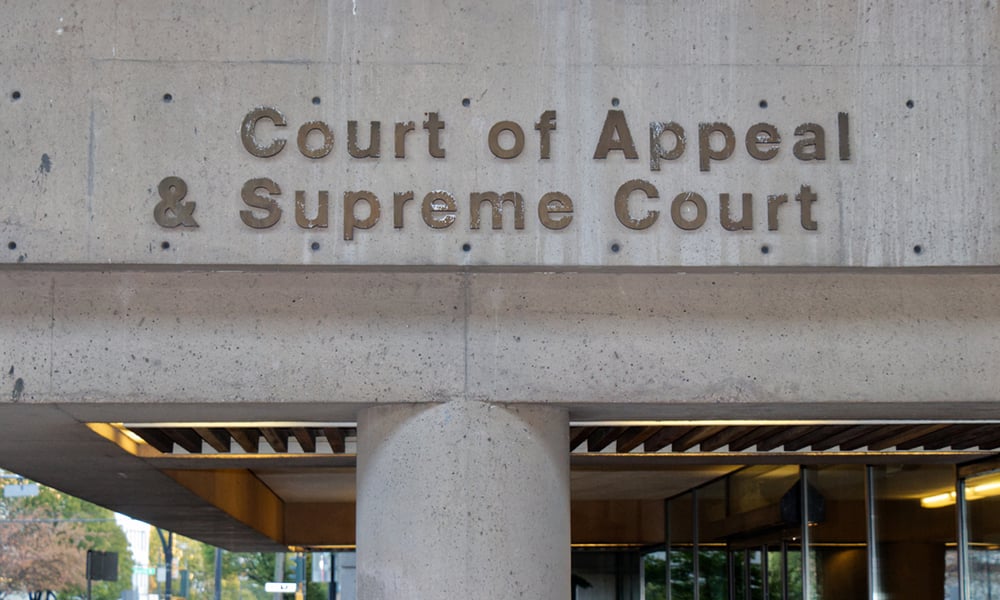Deceased told her spouse to transfer her estate to her niece if he entered into a new relationship

A request to effect a secret trust by a person in their deathbed is considered accepted when the trustee silently acquiesces, according to a decision from the B.C. Court of Appeal.
In Bergler v. Odenthal, 2020 BCCA 175, the deceased, shortly before her death from cancer, told her common-law partner, the defendant, that he should transfer her estate to her niece, the plaintiff in this case, if he should ever enter into a relationship with a new partner after her death.
Following her death, the defendant received the entire estate, transferred the funds into his own accounts and spent them as the owner. He also married another woman. The plaintiff thus filed an action asking the court to declare that a trust existed or that she was entitled to restitution for unjust enrichment.
The issue was whether the two essential features of a secret trust were present, said the decision. First, did the deceased, before her death, communicate her wish to the defendant to establish a trust? Second, did the defendant accept the deceased’s request to hold her property in trust for the benefit of the plaintiff?
Justice Mary Newbury, writing for the Court of Appeal for B.C., said that a secret trust existed because these features — a communication of her wishes and an acceptance of these wishes — were both present in this case. Even if the deceased did not necessarily mention the word “trust,” she still conveyed a request to the defendant, which he then accepted.
The defendant argued that the intention to create a trust and the acceptance of the obligation to carry out the trust should both be clearly proven.
In response, Justice Newbury wrote that “once the deceased’s communication of the trust obligations is established, acceptance can be ‘spelled out of the silence’ of the devisee/trustee and that the law assumes that ‘any person having received a request of this nature would be bound to say something if he rejected the idea that he himself should not enjoy the property beneficially.’”
Here, the defendant had not simply silently acquiesced, but had actually agreed to the deceased’s instructions. Even though the defendant had expressed dissatisfaction with the deceased’s wishes, he admitted to the court that he had told her that he would abide by her wishes.
The defendant’s second contention pertained to a property previously held by him and by the deceased in joint tenancy. He argued that death had severed the tenancy, so the property was automatically transferred to him. Thus, it should not be considered part of the deceased’s estate.
Newbury disagreed with this point, starting that the creation of the secret trust before her death had severed the joint tenancy, as a matter of law. Upon such severance, the trustee became “the legal owner of the subject assets immediately, holding for the benefit of the beneficiaries,” wrote Newbury.
The defendant had therefore infringed his fiduciary obligations as trustee, stated the court.










